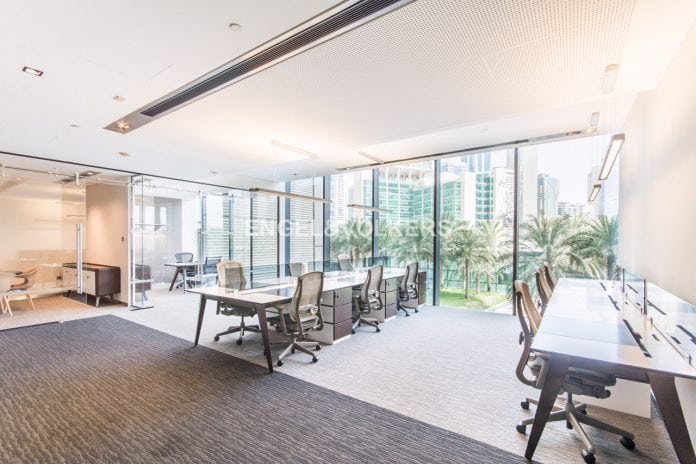
- 87% of respondents believe a return to the workplace is essential for successful business operations
- 77% of participants stated that they preferred to conduct team, client, and one-on-one meetings in an office setting
- 81% of those polled found the office to be best suited to undertake group projects and tasks
- The majority of participants found tasks such as reviewing documents and conducting phone or video calls to be better done at home
Savills, the leading global real estate advisors, today announced the results of their Office Fit Survey 2021, a study carried out to understand how perceptions around workplaces have changed since the pandemic. The survey revealed a strong preference among respondents for returning to a predominantly office-based work environment but with a fair degree of flexibility.
The Savills Office Fit Survey was first launched in 2020 with the goal of providing practical insights and design-led advice to owners and occupiers regarding their workplace strategy during the pandemic. This year’s survey analysed responses from 100,000 participants including landlords, tenants, and office workers across EMEA to ascertain post-pandemic trends.
Nearly two years since the onset of the pandemic, the physical office space still remains a necessity for companies to operate successfully, according to respondents. However, the majority of respondents believe that there will be a long-term impact on the design and size of the workplace. High-density, open plan workspaces will need to be rethought and reconfigured to allow for agile working. As employees require a space to focus on tasks, engage and collaborate with co-workers, companies will need to create workplaces that can provide them with micro-environments that can facilitate these activities. Instilling a work-life balance is now more critical than ever, with a renewed focus on both physical and mental health.
Steven Morgan, CEO of Savills Middle East said: “The findings of our survey echo the trends we are witnessing around the world, as employers welcome back employees to the workplace while they take a relook at how traditional workplaces are configured. The benefits and preference for the office have clearly emerged – for employers, it is the place where the company’s culture can be developed and protected, and for employees, it is where they can benefit from collaborative opportunities to advance their careers. However, the office must now provide more of the benefits of home working, such as physical health and a better work-life balance, as respondents believe these are better achieved at home.”
Recognising the trends emerging around the world, the UAE recently announced changes to its labour laws to better accommodate flexible working patterns that were increasingly adopted during the pandemic. New rules pertaining to part-time and temporary work, freelancing, condensed working weeks, shared job models, self-employment, and notice periods during probation, among others, are designed to protect both employees and employers, and increase the UAE’s competitiveness and appeal to talent around the world.
Prior to the release of the Office Fit survey findings, Savills Middle East hosted a panel discussion on the Future of Work at District 2020, within Expo 2020. The panel discussion, moderated by Richard Paul, Head of Professional Services and Consultancy at Savills Middle East, examined how the hybrid working model will evolve and adapt over the next year. The panel included contributions from Christopher Payne, Chief Economist, Peninsula Real Estate Management; Ben Corrigan, CEO and Founder, Bluehaus Group; Nadimeh Mehra, Vice President, District 2020; Julien Romanet, Deputy Head of Global Real Estate, Gulf Islamic Investments; and Steven Morgan, CEO Middle East, Savills.
Commenting on key takeaways from the discussion, Richard Paul, Head of Professional Services and Consultancy at Savills said: “The discussion’s central theme was the increased emphasis on people. The pandemic demonstrated that working from home or outside of a traditional office can be successful when supported by technology. However, to sustain an organisation’s culture over time, human interaction is critical. Our esteemed panellists unanimously agreed that the office remains critical, however, there is a growing preference for a flexible, agile, and hybrid workplace.
Paul added, “It remains to be seen whether the world returns to working from the office full-time or if hybrid working is here to stay. In any case, businesses have begun to consider providing employees with an environment that motivates them to come to work and feel fulfilled on a personal and professional level.”


































